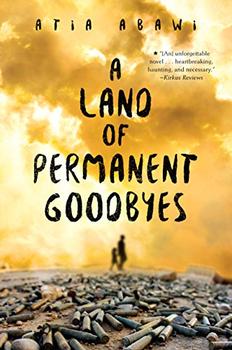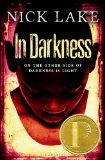Summary | Excerpt | Reading Guide | Reviews | Beyond the book | Read-Alikes | Genres & Themes | Author Bio

A novel based on a true story
by Laura Resau, Maria Virginia FarinangoAt only seven years old, Virginia is taken from her family. She is taken from her home, which is inside a small mud-walled hut that she shares with her parents, her brother and sister, their guinea pigs, and her goat. She is taken from her life outside where she pastures her sheep in the valley, works in the corn and potato fields, and plays beneath the mountain that looms over the village. Virginia, who is an indígena (an indigenous person), is taken away from everyone, everything, and every place she has known - to become a servant for a Spanish-descended mestizo couple and their child.
The Queen of Water by Laura Resau and María Virginia Farinango is a novel based on the true story of María Virginia's incredible childhood journey. It explores the hard lines that are drawn between class and ethnicity, the brutality of accepting and perpetuating stereotypes, and the incredible strength and wisdom of one girl as she redraws those lines and finally emerges as a whole and grounded young woman.
This book pulls no punches. It does not sugar-coat María Virginia's experiences as a servant for a middle class mestizo family. She is dealt a cruel hand, and Laura Resau deftly writes about the details of her abuse - both physical and emotional - and her dreams of escaping her situation. Not easy stuff to read. But Laura also lyrically writes about Virginia's courage and determination - to learn to read, to understand science, to leave her abusive situation, to become the person she is meant to become - and the ways in which she slowly achieves these goals. An amazing story.
The book is a true collaboration between Laura and María Virginia. It is clear that over the course of working together, these two women found a deep respect for one another, a balance in their distinctive roles, and a way to share the weight of this incredible story. And this collaboration is, hands down, the most extraordinary thing about the book.
Because they were both so present at the time, Resau and Farinango were able to weave their skills and talents together, which now allows the story to unfold, page by page, in a very immediate way, enabling the reader to be present too. And so the reader is also able to participate in the collaboration.
And what a collaboration! María Virginia is a person who defies categories. She has a foot in each world - indígena and mestizo - and still creates a space that is brand new. Like water, she flows, changes, adapts, and carves out her own space in this world.
The Queen of Water is a story for anyone who has ever felt caught between worlds or for anyone wanting that experience. It is a lyrical, moving, honest, and, yes, exceptionally present book.
About the Authors
 With a background in cultural anthropology and ESL-teaching, author Laura Resau has lived and traveled in Latin America and Europe. Her experiences inspired her novels, among them: What the Moon Saw, The Indigo Notebook, and The Queen of Water. She lives with her husband and toddler in Colorado, and she donates a portion of her royalties to indigenous rights organizations in Latin America. For more information, please visit her bio page.
With a background in cultural anthropology and ESL-teaching, author Laura Resau has lived and traveled in Latin America and Europe. Her experiences inspired her novels, among them: What the Moon Saw, The Indigo Notebook, and The Queen of Water. She lives with her husband and toddler in Colorado, and she donates a portion of her royalties to indigenous rights organizations in Latin America. For more information, please visit her bio page.
 María Virginia Farinango was born in a small Quichua community in the Ecuadorian Andes. The Queen of Water is based on the true story of her girlhood and her struggle to find her place between two cultures. She is now working toward a degree in psychology and lives in Otavalo with her husband and her son. For more information, please visit her bio page.
María Virginia Farinango was born in a small Quichua community in the Ecuadorian Andes. The Queen of Water is based on the true story of her girlhood and her struggle to find her place between two cultures. She is now working toward a degree in psychology and lives in Otavalo with her husband and her son. For more information, please visit her bio page.
Photo credit: Tina Wood (Resau)
Photo credit: Ken Burgess (Farninango)
![]() This review was originally published in The BookBrowse Review in May 2011, and has been updated for the
April 2012 edition.
Click here to go to this issue.
This review was originally published in The BookBrowse Review in May 2011, and has been updated for the
April 2012 edition.
Click here to go to this issue.

If you liked The Queen of Water, try these:

by Atia Abawi
Published 2019
Narrated by Destiny, this heartbreaking - and timely - story of refugees escaping from war-torn Syria is masterfully told by a foreign news correspondent who experienced the crisis firsthand.

by Nick Lake
Published 2014
Raw, harrowing, and peopled with vibrant characters, In Darkness is an extraordinary book about the cruelties of man and nature, and the valiant, ongoing struggle for a country's very survival.
There is no such thing as a moral or immoral book. Books are either well written or badly written. That is all.
Click Here to find out who said this, as well as discovering other famous literary quotes!
Your guide toexceptional books
BookBrowse seeks out and recommends the best in contemporary fiction and nonfiction—books that not only engage and entertain but also deepen our understanding of ourselves and the world around us.